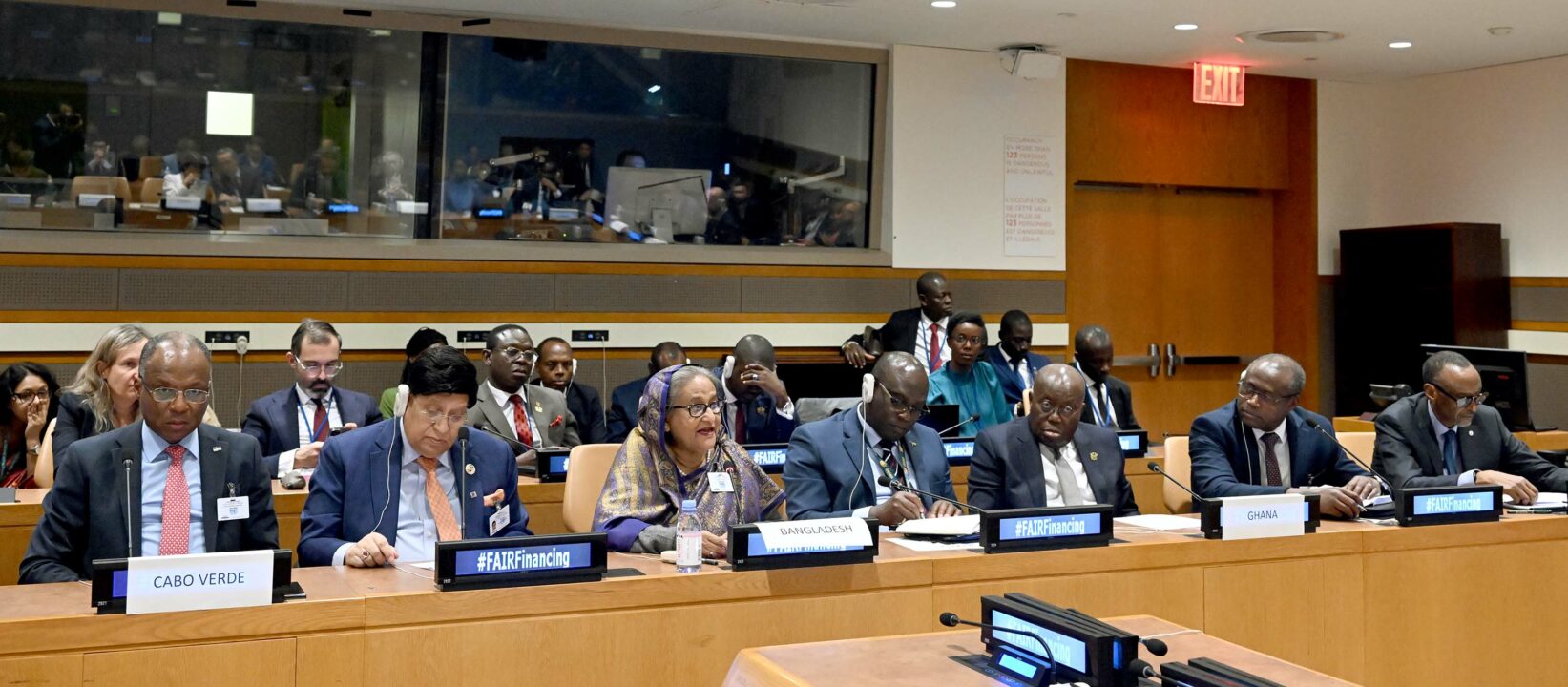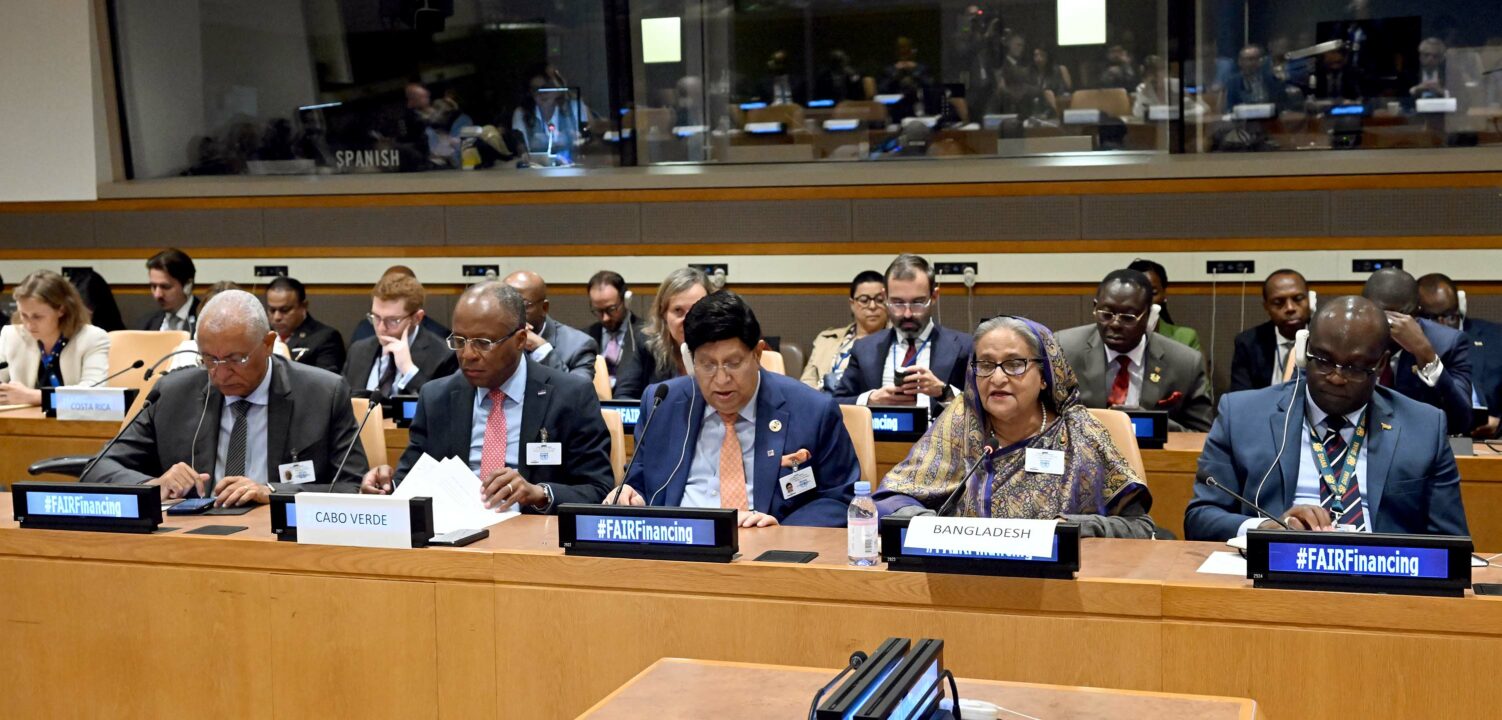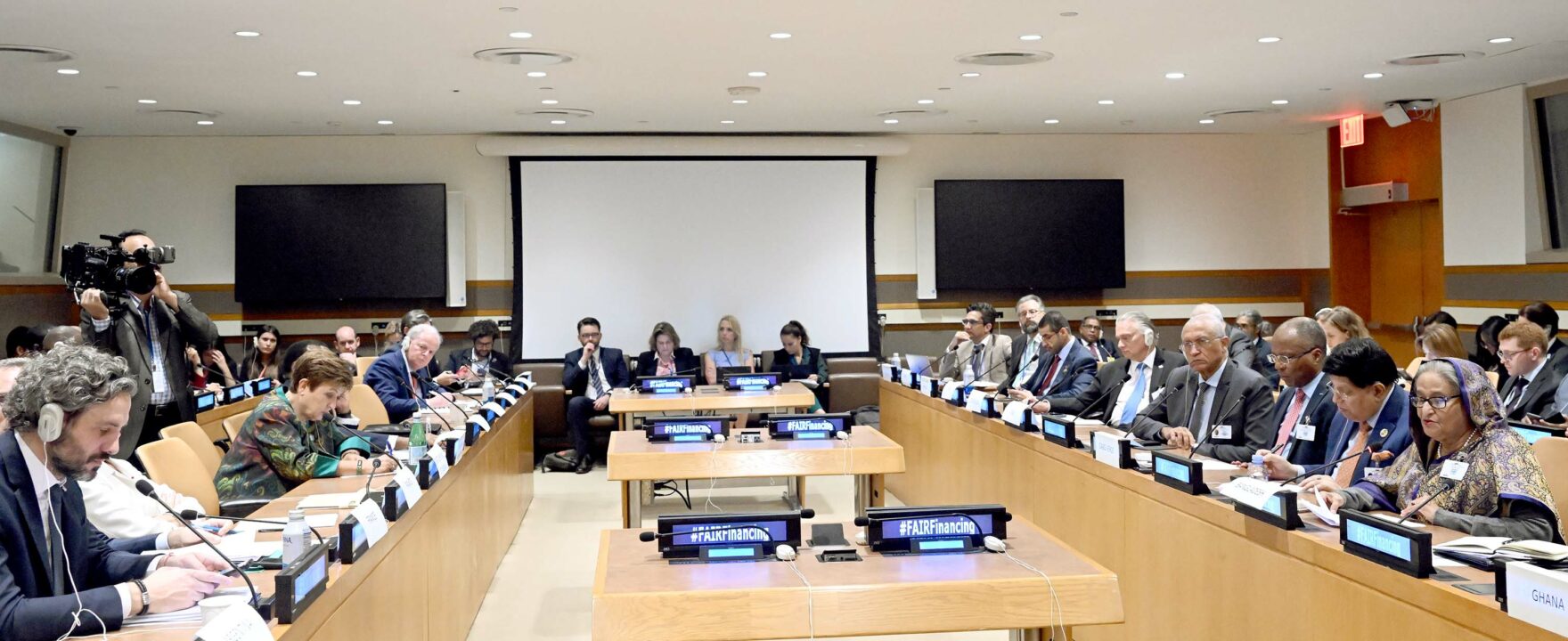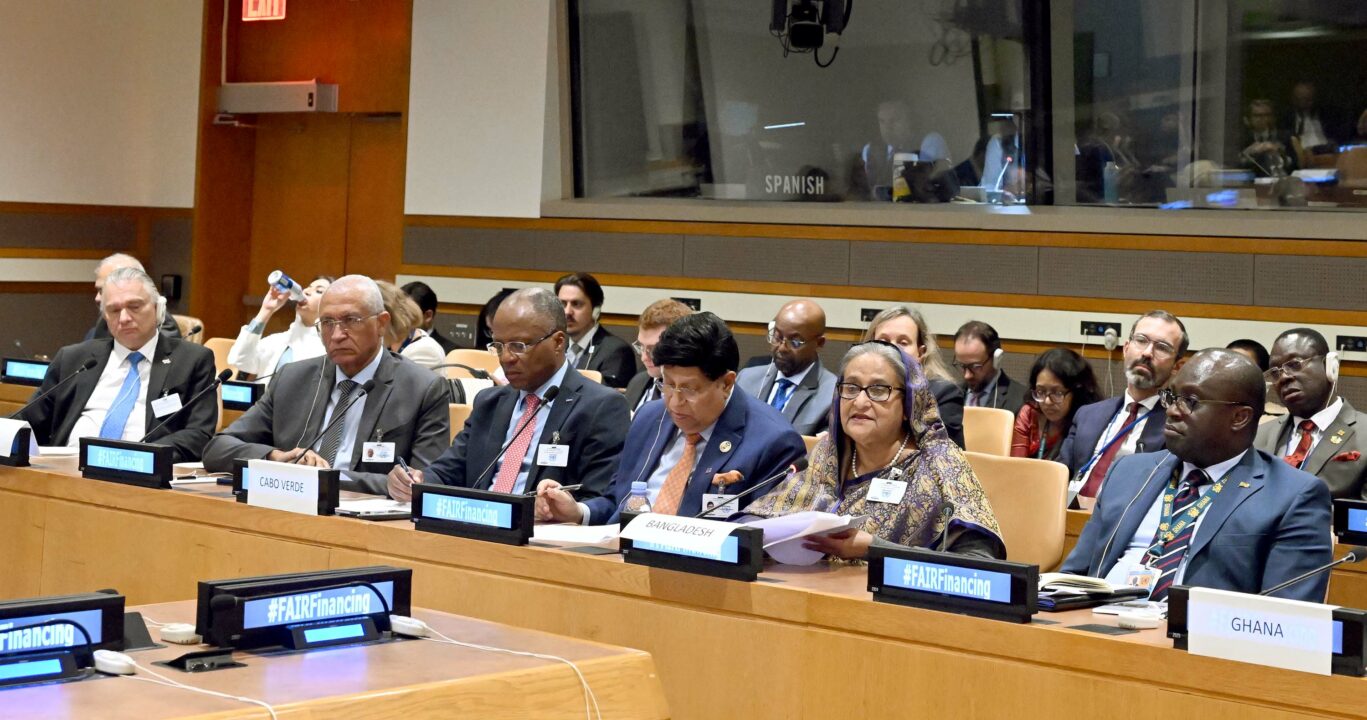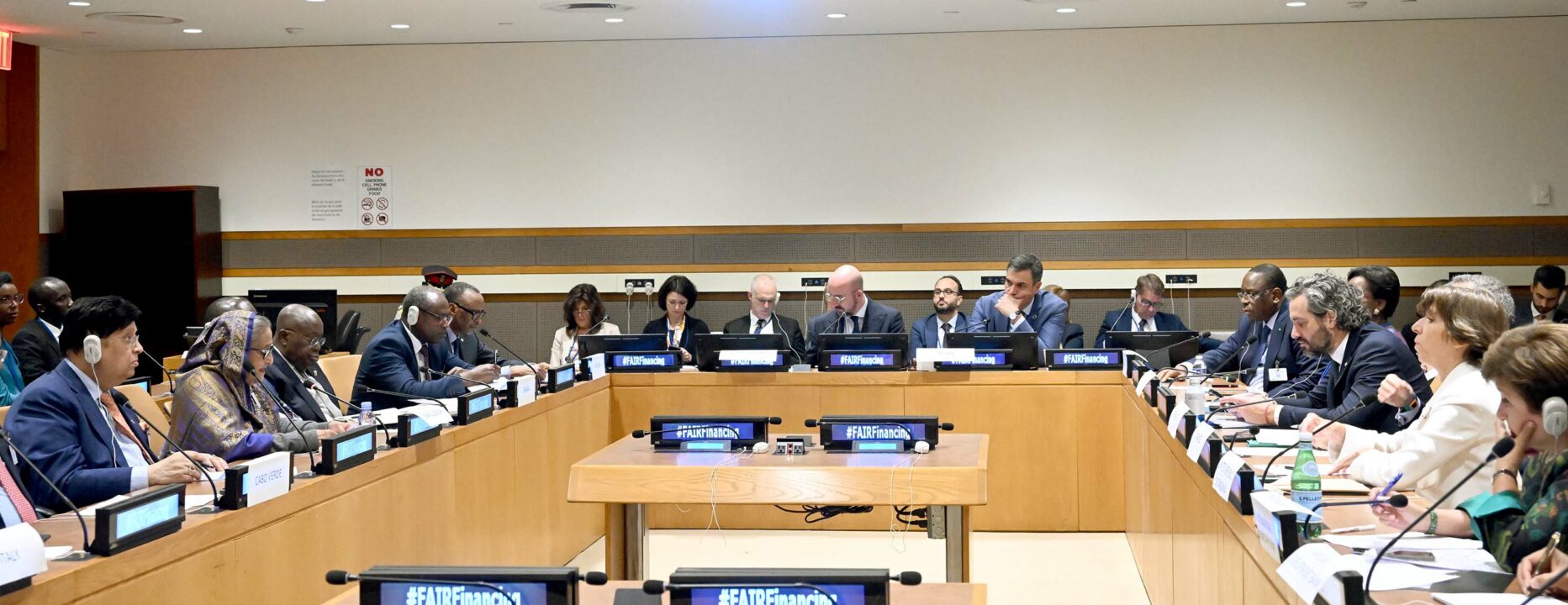Bismillahir Rahmanir Rahim
Excellencies,
Distinguished delegates,
Assalamu Alaikum and good afternoon.
I thank the Prime Minister of Spain and President of European Council for convening this meeting. We recognise that the international financial architecture needs urgent reforms. But, agreement on the nature and extent of the reforms remains lacking.
Political will is important.
Excellencies,
Bangladesh has long been credited for its sound macro-economic management. Our economy grew by 8.15% just before the pandemic. The health, cost-of-living and climate crises have put our economy under stress. We have negotiated a loan package of 4.7 billion US dollars with IMF as a pre-cautionary measure. We are trying to curb inflation, manage balance of payment and maintain our development expenditures. There are evident strains on our fiscal and policy space.
Excellencies,
We often find international public finances to be costly and out-of-reach. We try to stay clear of high interest rate loans to avoid debt distress. Bangladesh has never defaulted on its loan repayment, and we hope to maintain that record. We agree with the UN Secretary General that the global credit rating system must be reviewed. The current rating system further restricts access to funds for many low and middle income countries. The limits on their voting rights, quotas and representation in MDBs and IFIs also undermine their bargaining power.
Excellencies,
Again in the words of the Secretary General, “a fundamental shift is required”. I take this opportunity to emphasize five points:
First, MDBs, IFIs and private lending agencies must realign their priorities and mobilize additional funds for SDG implementation and climate action;
Second, funds need to be made available for developing countries at low-cost, concessional rates, and preferably in higher quantity of grants;
Third, all lending instruments should have disaster clauses to allow vulnerable countries to absorb shocks during crisis;
Fourth, fair and effective debt relief measures need to be given priority based on coordination and transparency among creditors; and,
Fifth, instead of quota, SDR borrowing limits should be based on needs and vulnerability, supported by easy lending processes.
Excellencies,
Distinguished delegates,
It is critical for the international financial architecture to be inclusive and representative of the Global South. Development narratives from countries like Bangladesh demonstrate that we can do our part. It is time for the international financial system to respond to our expectations.
I thank you.
Joi Bangla, Joi Bangabandhu
***

